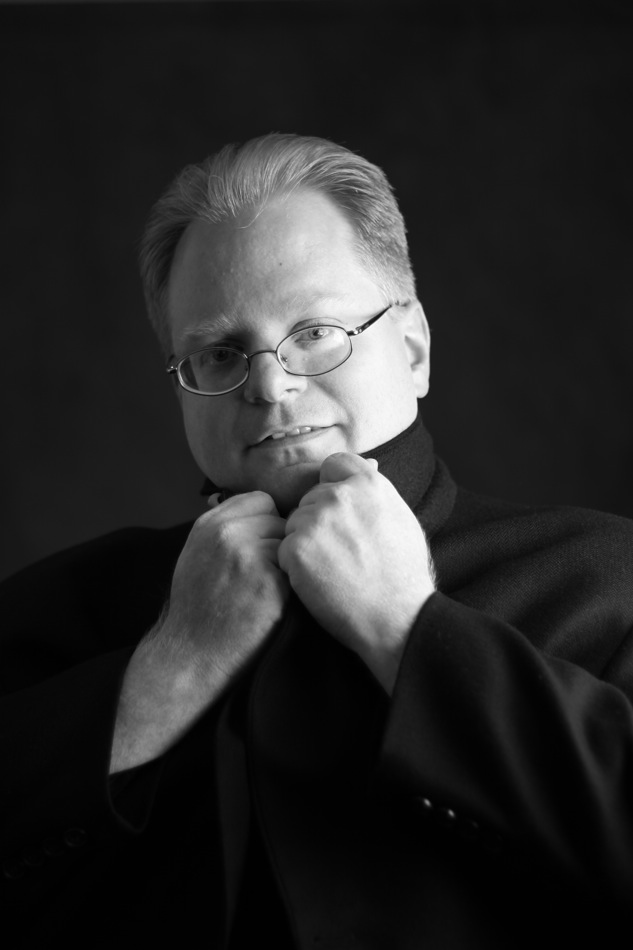Steven Reigns, Creating a Safe Space for Poetry
On a recent Tuesday night, a group of budding poets squeezed around a plate of chocolate chip and circus animal cookies in the soon-to-be-remodeled West Hollywood Library in California. They were there for The Poetics of Your Life, an autobiographical poetry workshop led by P&W-sponsored writer Steven Reigns and founded on the premise that a safe writing space is the best place to excavate memories.
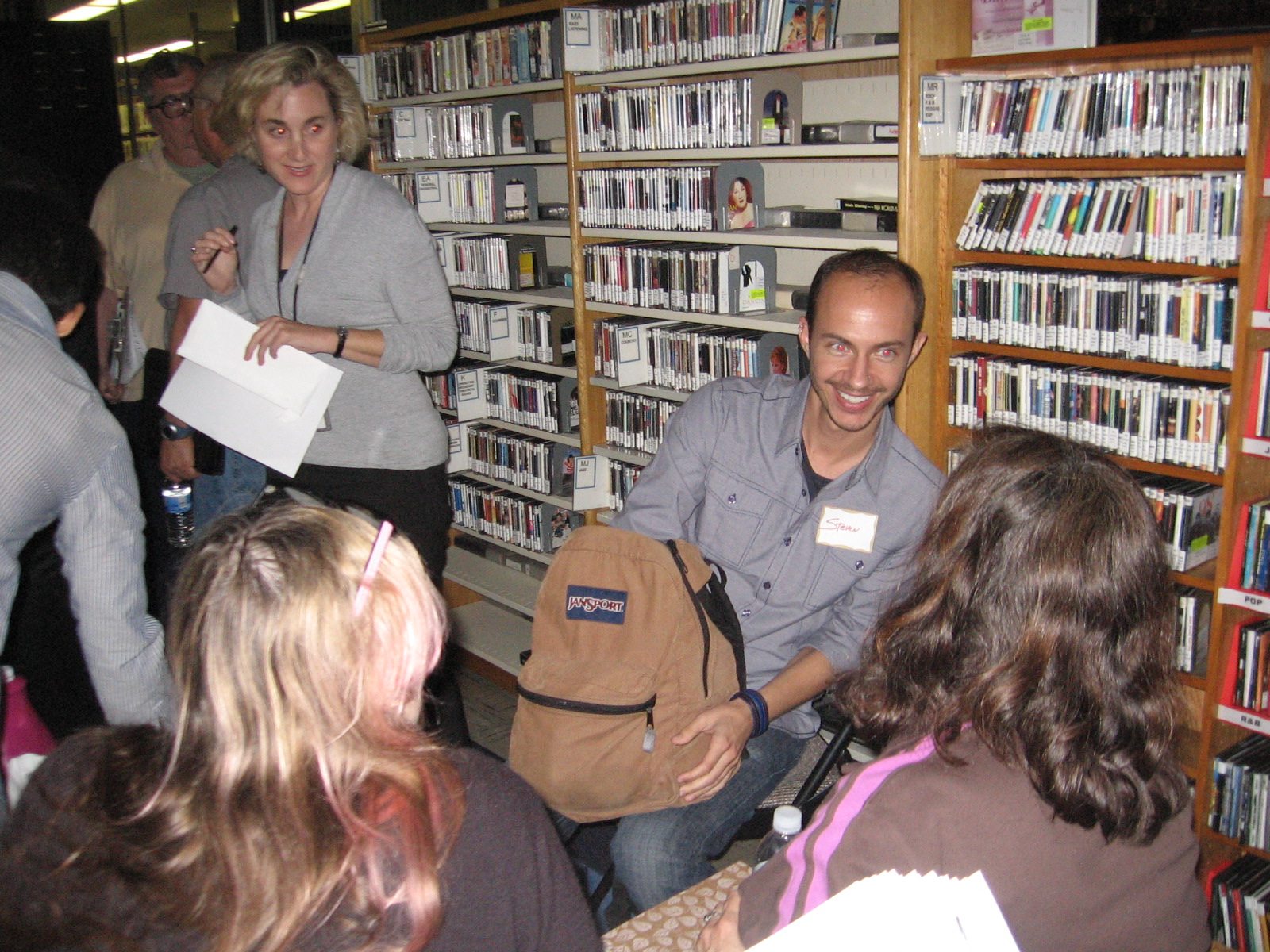 “I’ve used my own writing to make sense out of things that have happened in the past,” he explained. He laid down his class rules, which included “No criticism of anyone’s writings…even your own” and “What happens in class, stays in class” or “the Vegas Rule.”
“I’ve used my own writing to make sense out of things that have happened in the past,” he explained. He laid down his class rules, which included “No criticism of anyone’s writings…even your own” and “What happens in class, stays in class” or “the Vegas Rule.”
After reading and reflecting on poems by Dorianne Laux and Deborah Paredez, and warming up with a group erasure poem, he issued the first prompt: Write about a fire in your life. The responses were both literal and metaphorical, ranging from a car fire to a self-inflicted iron burn to a dancer’s internal fire.
Following his reading a poem called “Wedding Dress,” in which poet Michael Waters warmly recalls wearing his wife’s bridal gown for Halloween, Reigns asked the group to write about a time they’d cross-dressed or worn an item of clothing belonging to the opposite gender. Whether it was about slapping on a fake mustache for a costume party or falling in love with previously off-limits designer ball gowns, everyone produced poems of self-discovery.
With just a few minutes left of the two-hour workshop, Reigns encouraged anyone who wanted to share but had been too shy to step forward. A small handful did, and their poems clearly moved the group. Reigns then issued a last, last call, and it happened again.
Major support for Readings/Workshops events in California is provided by The James Irvine Foundation. Additional support comes from the Friends of Poets & Writers.
Photo: Steven Reigns with workshop participants. Credit: Cheryl Klein.






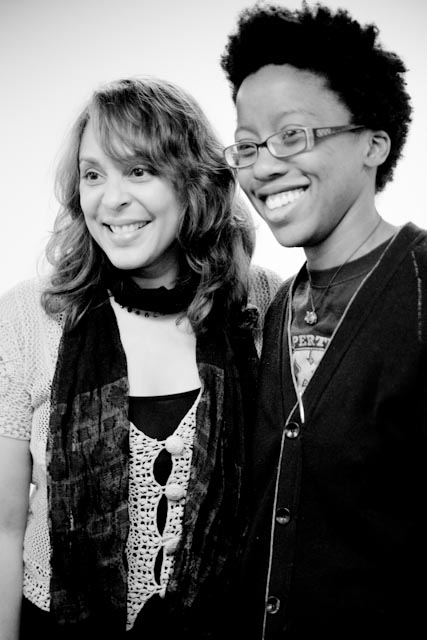 Willow Books, the literary imprint of P&W-supported
Willow Books, the literary imprint of P&W-supported 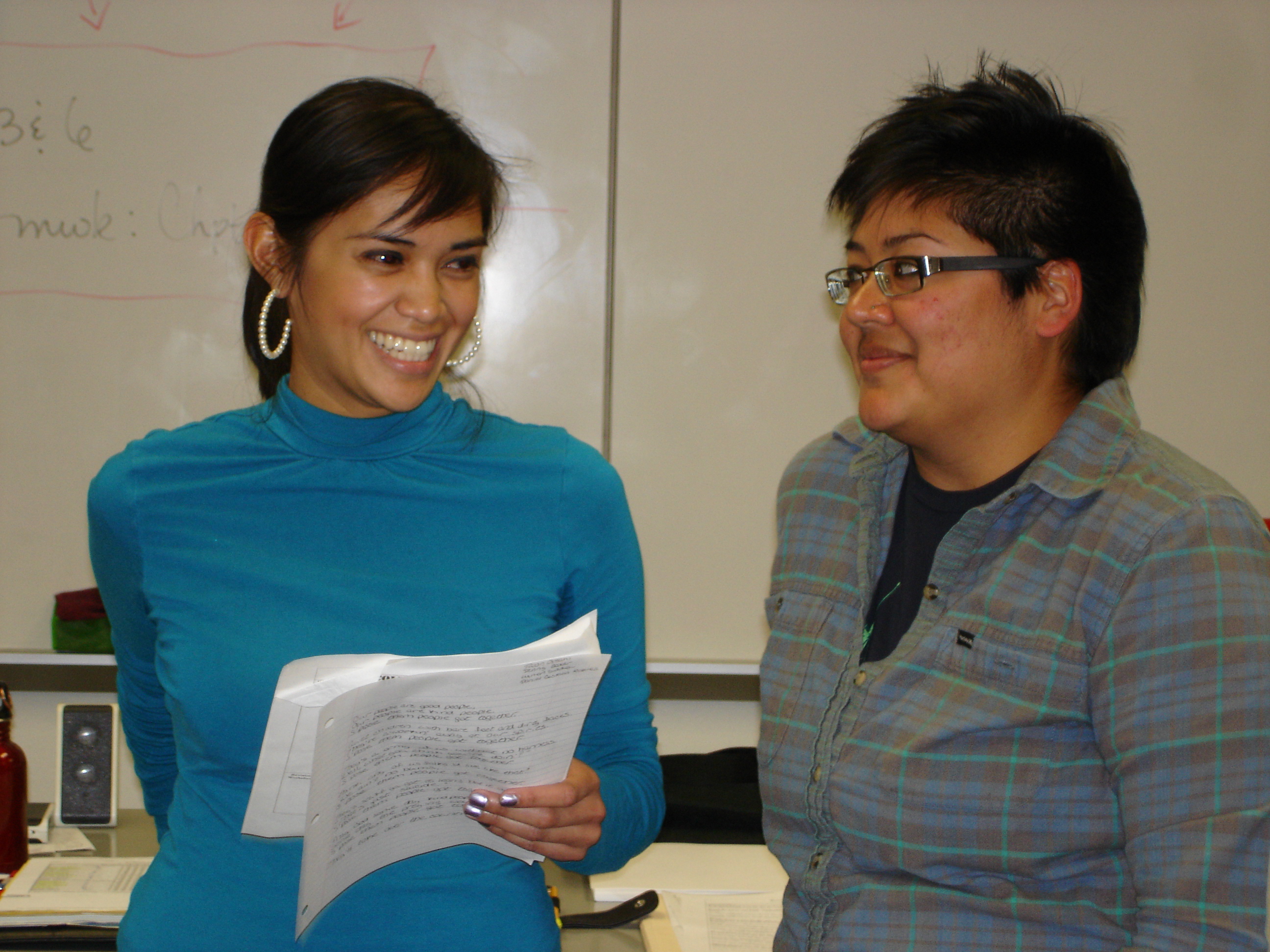 The workshop was inspired, in part, by UC Riverside professor and novelist Susan Straight, who emphasized to her students the need for community participation through the arts. When her graduate students approached her with an interest in teaching in the Riverside community, she recommended her alma mater, North High.
The workshop was inspired, in part, by UC Riverside professor and novelist Susan Straight, who emphasized to her students the need for community participation through the arts. When her graduate students approached her with an interest in teaching in the Riverside community, she recommended her alma mater, North High. 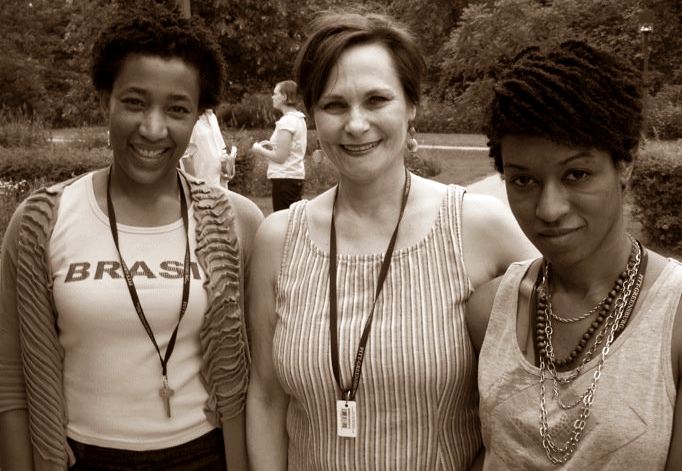 “Participating
in a Cave Canem workshop…was a major stepping stone in my development as a
poet,” says one workshop student. “Cave Canem has given me the confidence,
inspiration, direction and community that have proved to be invaluable. . .I
will always be grateful to this community of poets and now, friends.”
“Participating
in a Cave Canem workshop…was a major stepping stone in my development as a
poet,” says one workshop student. “Cave Canem has given me the confidence,
inspiration, direction and community that have proved to be invaluable. . .I
will always be grateful to this community of poets and now, friends.”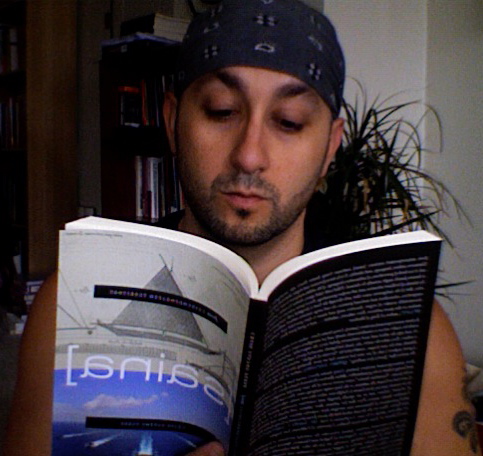 Reading don’ts: Don't read too quietly. Don't shuffle through papers as if you just rolled out of bed. Don't say that you're going to read from your book that you don't like anymore because you wrote it a year ago. Don't talk for too long about the background of a poem. Don't drink water in the middle of a poem. Don't read drunk or high (unless that's part of your aesthetic). Don't go over time. Don't read too fast. Don't be hostile to the audience during Q&A. Do not not smile.
Reading don’ts: Don't read too quietly. Don't shuffle through papers as if you just rolled out of bed. Don't say that you're going to read from your book that you don't like anymore because you wrote it a year ago. Don't talk for too long about the background of a poem. Don't drink water in the middle of a poem. Don't read drunk or high (unless that's part of your aesthetic). Don't go over time. Don't read too fast. Don't be hostile to the audience during Q&A. Do not not smile.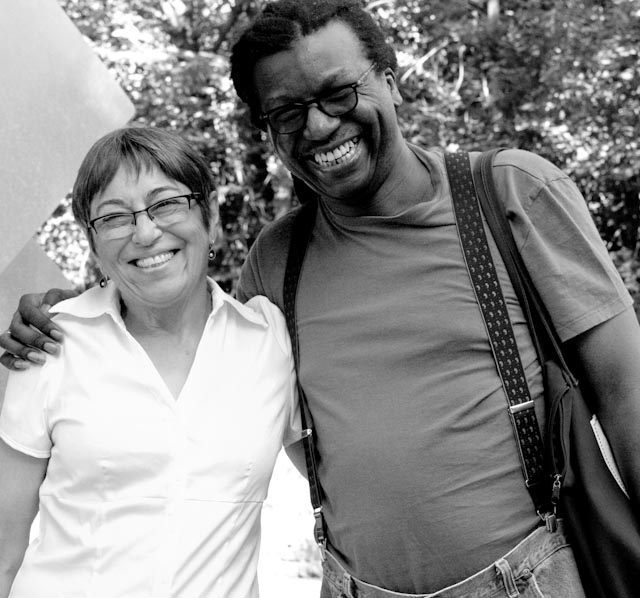 In the fifteen years since its founding, Cave Canem’s community has grown to become an influential movement with a renowned faculty and high-achieving national fellowship of over three hundred, many of whom have been P&W-supported and/or listed in the
In the fifteen years since its founding, Cave Canem’s community has grown to become an influential movement with a renowned faculty and high-achieving national fellowship of over three hundred, many of whom have been P&W-supported and/or listed in the 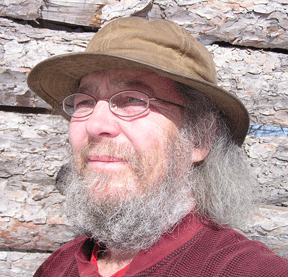 Lima is a small village, about 2,500 people, in upstate New York. The surrounding area is mostly farmland and newer rural suburbia. My home, Wheeler Hill, is even more rural, isolated. Dirt roads and Old Order Amish neighbors. I am a country person, but also a poet and
Lima is a small village, about 2,500 people, in upstate New York. The surrounding area is mostly farmland and newer rural suburbia. My home, Wheeler Hill, is even more rural, isolated. Dirt roads and Old Order Amish neighbors. I am a country person, but also a poet and 